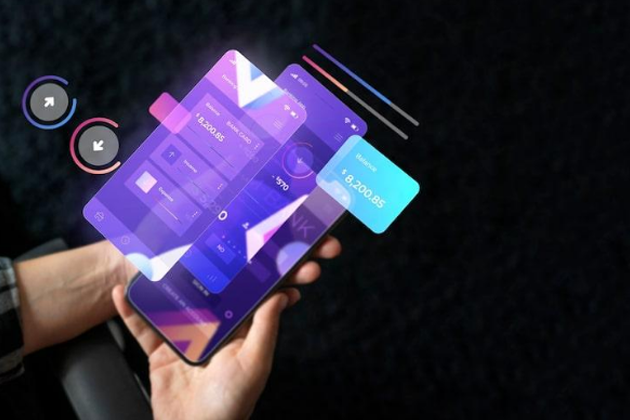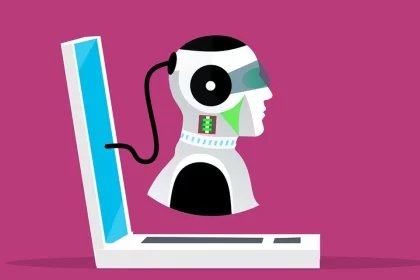The mobile app landscape is witnessing a seismic shift as artificial intelligence and machine learning take center stage. By 2025, these technologies are set to redefine how users interact with their devices, enhancing personalization and streamlining functionality. With AI-driven features, apps will adapt to individual preferences, making every interaction more intuitive and engaging.
As developers harness the power of machine learning, the user experience will evolve in ways previously thought impossible. From predictive text to intelligent recommendations, mobile applications will not only respond to user actions but anticipate needs, creating a seamless experience. This transformation promises to elevate user satisfaction and redefine how people connect with technology.
Overview of AI Revolution in Mobile Apps
The integration of advanced technologies in mobile applications has transformed user experiences fundamentally. By 2025, developers will leverage artificial intelligence and machine learning to create applications that offer far more than basic functionality. These technologies will enable apps to learn from user interactions, leading to enhanced personalization. Individuals will encounter features tailored specifically to their preferences.
Personalized recommendations will become commonplace. For example, entertainment apps will suggest content based on viewing habits, while shopping applications will highlight products aligned with past purchases. This level of customization ensures users gain a more engaging and relevant experience.
Applications will also demonstrate increased anticipatory capabilities. Many apps will predict user needs by analyzing behavior patterns over time. Instead of reacting to commands, they will preemptively provide suggestions or actions. This proactive approach will create a seamless, intuitive interface that requires less effort from the user.
Moreover, the incorporation of voice and image recognition technologies will refine user interactions even further. Users will find it easier to navigate applications through simple verbal commands or images captured by their devices. Such advancements will enhance accessibility, allowing a wider audience to utilize mobile technology effectively.
As the capabilities of artificial intelligence continue to evolve, developers will focus on making applications more intelligent and user-friendly. This shift will lead to an environment where mobile apps act as personal assistants, available anytime and anywhere. For enthusiasts looking to combine convenience with entertainment, exploring the top betting apps can provide seamless access to sports wagering on the go. The synergy between improved functionality and smart technology promises to revolutionize how users connect with their devices, making technology more integrated into everyday life.
Key Machine Learning Technologies
Various machine learning technologies play crucial roles in enhancing mobile app user experiences. Key advancements include deep learning algorithms and natural language processing techniques.
Deep Learning Algorithms
Deep learning algorithms analyze large datasets to improve app performance and personalization. These multi-layer neural networks excel in recognizing patterns and extracting features from complex information, leading to better predictions and recommendations. For instance, entertainment apps use these algorithms to provide tailored content based on individual viewing histories. Additionally, shopping applications benefit from deep learning by understanding user preferences and suggesting relevant items, enhancing the overall shopping experience. As these algorithms become more refined, users encounter increasingly intelligent applications that anticipate their needs and preferences.
Natural Language Processing
Natural language processing (NLP) empowers mobile applications to understand and respond to user inputs effectively. By analyzing and interpreting human language, NLP enables voice commands, chatbots, and text-based interactions within apps. Users can enjoy more natural and intuitive communication when interacting with intelligent virtual assistants. This technology also facilitates accurate translation services, making apps accessible to a global audience. As NLP capabilities improve, users experience smoother conversation flows and enhanced functionality, contributing to a more engaging and user-friendly experience overall.
Enhancements in User Experience
Innovations in artificial intelligence and machine learning significantly enhance mobile application user experiences. These advancements foster greater engagement through tailored interactions and features that adapt to individual preferences.
Personalized Recommendations
Apps increasingly utilize algorithms to analyze user data, enabling customized recommendations. Entertainment platforms suggest movies and shows based on viewing history, while shopping apps highlight products aligned with previous purchases. This level of personalization increases user satisfaction and encourages repeated interactions. Users receive proactive notifications about new content or deals tailored to their interests, enhancing their overall experience. As algorithms become more sophisticated, the accuracy of recommendations improves, making the interaction feel seamless and intuitive. Personalized feeds emerge as a standard feature, leading to a more engaging environment for users, a trend also influencing the gaming industry as platforms tailor experiences to individual player preferences.
Intelligent Assistants
The integration of intelligent assistants transforms how users interact with their devices. These assistants respond to voice commands and text inquiries, streamlining navigation and task completion. Natural language processing has improved significantly, allowing for more fluid conversations between users and applications. As these assistants learn from user behavior, they begin to anticipate needs, increasing efficiency in daily tasks. Scheduling, reminders, and information retrieval become hassle-free activities. With continued advancements, users can expect even richer interactions and a deeper understanding of contextual information, fostering a more dynamic application ecosystem.
Challenges and Considerations
The rise of intelligent technologies brings several challenges that developers and users must navigate. Understanding the implications of data privacy and integration with existing systems is crucial for ensuring a smooth transition into a more advanced mobile landscape.
Data Privacy Concerns
Data privacy emerges as a critical issue as applications become increasingly reliant on user data. Collecting and analyzing personal information for personalized experiences raises significant concerns about consent and security. Users often question how their data is stored, shared, and utilized, creating a demand for transparent privacy practices. Regulations like GDPR and CCPA highlight the need for developers to prioritize user privacy while fostering trust. Failure to comply or address these concerns may lead to potential legal ramifications and diminished user confidence in mobile technologies. Upholding stringent data protection standards facilitates a safer environment where users feel comfortable engaging with applications.
Integration with Legacy Systems
Integrating new technologies with legacy systems presents significant challenges for businesses. Existing systems may not easily accommodate advanced functionalities, making seamless integration difficult. Ensuring compatibility requires developers to balance innovative features with core system requirements. Technical limitations often hinder the seamless flow of data between old and new platforms, affecting performance. Investing in middleware solutions could ease the transition, allowing businesses to leverage modern advancements without completely overhauling their established infrastructure. Organizations must remain strategic in their approach to facilitate smooth integration and mitigate disruption during the transformation process.
Future Trends in Mobile App Development
Innovations in mobile app development are reshaping how users interact with technology. Developers focus on enhancing user engagement and streamlining processes, making applications more intuitive and responsive.
Voice and Gesture Recognition
Voice and gesture recognition technologies are gaining traction as developers aim to create hands-free experiences. These features allow users to interact naturally with applications through speech or movements. Voice recognition facilitates multitasking, enabling users to command applications without needing their hands. Gesture recognition enhances navigation, letting users swipe, tap, or point to manage content effortlessly. As these technologies evolve, they will provide an immersive experience, making it easier for users to engage with content and access features quickly. The combination of these modalities will lead to apps that understand context better, resulting in swift and efficient user interactions.
Predictive Analytics
Predictive analytics is playing a pivotal role in shaping user experiences. By analyzing data patterns and user behavior, applications can anticipate needs and preferences. This technology allows for personalized content recommendations, tailoring experiences to individual users. As mobile apps adopt these analytics, users will benefit from features that evolve over time, reflecting their changing interests. Developers can utilize insights to refine application functionality, enhancing user satisfaction and engagement. By integrating predictive capabilities, apps become proactive rather than reactive, offering solutions before users recognize them. This forward-thinking approach is set to transform the landscape, making applications more relevant and user-friendly.
Conclusion
The AI revolution in mobile apps is set to redefine user experiences by 2025. As machine learning technologies evolve, users will benefit from highly personalized interactions that anticipate their needs. This transformation promises not only to enhance engagement but also to streamline everyday tasks through intelligent assistance.
While the potential is immense, developers must remain vigilant about data privacy and integration challenges. Striking a balance between innovative features and user security will be crucial for success. Embracing these advancements will lead to a more intuitive and satisfying mobile experience, ultimately changing how users interact with their devices.










